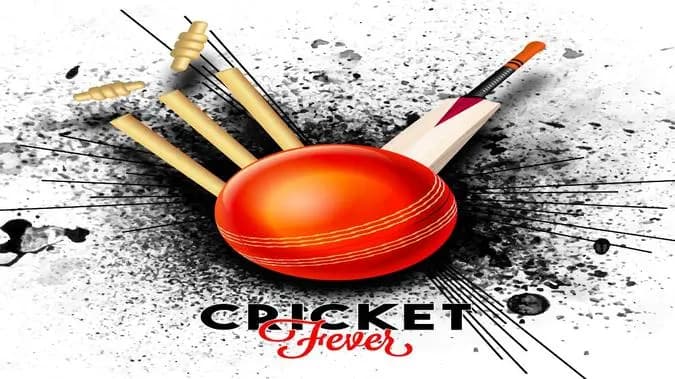Cricket Drills and Training Exercises: Comprehensive Guide for Kids
By Harshitha |
Date 07-08-2024

Table of Contents
Admissions Open for
Cricket is a game that is loved everywhere. Overall, the kids could be trained in fitness, coordination, and teamwork activities, not forgetting cricket. Among other aspects discussed here include fun, powerful cricket drills for kids, practicing at home or using specific exercises or activities to develop agility and fitness and structured training exercises that build strength. Opinions on sports clubs, leagues, and programs, and how they go about developing young cricketers follow afterwards in the following pages.
Introduction to Cricket Drills and Training
Cricket is a highly skilled and athletic game involving the implementation of different strategies in various matches. Hence, the training drills for the players are designed to maintain a high level of fitness to excel in batting, bowling and fielding. For the kids to derive enjoyment from such activities, the training drills and practice sessions have elements of fun in them.
Fun and Effective Cricket Drills for Kids
.jpg)
Batting Drills:
1. Target Practice:
Objective: Develop precision and control in hitting the ball.
Setup: Space out a line of cones or targets at increasingly longer lengths.
Execution: Kids will work on hitting the ball to knock down the targets; variations include using a tennis ball for safety and ease.
2. Hand-Eye Coordination Drill:
Objective: Enhance hand-eye coordination with respect to input timing and positioning.
Setup: Take advantage of a tennis ball machine or have a partner pitch balls.
Execution: Kids focus on hitting balls pitched at varying speeds and angles.
Bowling Drills:
1. Cone Accuracy:
Objective: Improve bowling accuracy.
Setup: Place cones or small targets on the pitch at certain locations.
Execute: Children bowl, aiming to knock over targets with their ball.
Variation: Add penalties for missing targets to sharpen their focus and attention.
2.Run-Up Practice:
Objective: Smooth and consistent run-up.
Setup: Cones marking the run-up area.
Execute: The children practice their run-up, focusing on rhythm and balance.
Fielding Drills:
1. Catching Relay:
Objective: Develop catching skills.
Setup: Two lines of children are set up opposing each other.
Execution: One child throws the ball to the opposite line, who catches and then throws it back. Gradually increase the speed.
2. Ground Fielding:
Objective: Develop ground fielding.
Setup: Spread some balls on the ground in the field.
Execution: Children run to collect each ball and throw it back to a point. Emphasize correct body positions and throwing style.
How Can Kids Practice Cricket at Home?
Before enrolling for any sports clubs, cricket practice can be fun yet effective even at home if one is creative and has the appropriate gear. Here are some helpful pointers.
Indoor Batting Practice
1. Softball Batting
Preparation: Use a soft ball such as a tennis or sponge ball to prevent damage or injury
Performance: Make swings against a wall or into a net, work more on techniques rather than power hitting
2. Shadow Batting
Preparations: None.
Execution: Children maintain a batting stance and swing profile over-ball, focusing on the form and balance.
Bowling Practice:
1. Target Bowling:
Set-up: A mat or piece of carpet with a target marked on it.
Execution: Children bowl at the target, working on accuracy and consistency.
2. Mirror Drills:
Set-up: Stand in front of a mirror.
Execution: Practice bowling action with running in, see in the mirror, observe that the correct form is maintained.
Fielding Practice:
1. Wall Rebound:
Setup: Stand a number of feet back from the wall.
Execution: Throw a ball against the wall and then catch the rebound. This helps to increase reaction time and is good for hand/eye coordination.
2. Solo Catching:
Setup: Use a soft ball.
Execution: Throw the ball in the air and catch it numerous times concentrating on a variety of catches, for example, high catches, and low catches, etc.
Specific Exercises to Improve Cricket Agility and Fitness for Kids
Cricket drills often focus on agility and fitness that are essential attributes of cricket. Following are some specific exercises for these very features:
Agility Drills:
1. Ladder Drills:
Objective: Focus on footwork patterns and agility.
Set-up: An agility ladder is laid down on the floor.
Execution: The kids move through the ladder performing a variety of footwork patterns at increasingly fast speeds, all while maintaining form.
2. Cone Drills:
Objective: Improvement in change of direction and rapidly.
Set-up: Place cones in any particular pattern, for example, zigzag or square pattern.
Execution: The young boy runs through the cones, changing direction rapidly, remaining balanced.
Fitness Exercises:
1. Jump Squats:
Objective: Lower body strength and power
Execution: Perform squats and jump top of each squat. Start by keeping soft landing concentrating on the form being maintained.
2. Plank Variations:
Objective: Stronger core
Execution: Elbow and toe plank variations may be done. Add side planks, alternating arm lifts, or other variations for some challenges, too.
3. Sprints:
Objective: Increase cardiovascular fitness and speed.
Execution: Conduct sprints in short, 20-30 meters of full effort, after which rest. Do this several times.
Cricket Workouts
Comprehensive exercises in cricket drills help in developing overall cricket fitness. Following is a sample cricket workout plan for children:
Warm-Up:
1. Jogging:
Duration: 5-10 minutes.
Objective: Increase heart rate and warm up the muscles.
2. Dynamic Stretches:
Duration: 5-10 minutes.
Objective: Improve flexibility and ready muscles for activity.
Examples: Arm circles, leg swings, lunges with a twist.
Main Workout:
1. Strength Training:
Bodyweight Exercises:
-
Squats: 3 sets of 10-15 reps.
-
Push-Ups: 3 sets of 10-15 reps.
-
Planks: 3 sets of 30 seconds.
Resistance Band Exercises:
-
Band Rows: 3 x 10-15 reps.
-
Band Shoulder Press: 3 x 10-15 reps.
2. Cardio and Agility:
· Ladder Drills: 3-5 minutes.
· Cone Drills: 3-5 minutes.
· Sprints: 5-10 sprints of 20-30 meters.
Cool Down:
Resize Static Stretches:
Duration: 5-10 minutes
Objective: To facilitate recovery and prevent muscle soreness
Examples: Hamstring stretch, quad stretch, calf stretch.
Training Exercises for Cricketers to Build Strength
Building strength is very crucial for younger cricketers to improve their performance. Following are some important strength training exercises that are provided during cricket drills:
Upper Body Strength:
1. Push-Ups:
Purpose: Primarily involves Chest, Shoulders, and Triceps.
How to perform: Push-ups should be performed with a straight line in the body.
2. Pull-Ups:
Purpose: Develop back and biceps.
How to perform: Introduce pull-ups through a bar, targeting full range of motion.
Lower Body Strength:
1. Squats:
Purpose: Involves building the leg muscles.
How to perform: Perform bodyweight squats and introduce resistance
Objective: To build up strength in legs and improve balance.
How to do: perform walking lunges. – the knee should not be moved past the toe.
Core:
1. Plank
Objective: Core Strength
How to do: Hold a plank firmly in a proper position by keeping the body straight.
2. Russians Twist
Objective: to strengthen the Obliques
Performance: Seated position with knees up and then lean back slightly then turn the middle of the body to one side while holding a weight.
The Role of Sports Clubs in Cricket Training
Sports Clubs are an important constituent in the development of young cricketers. They provide structured training, coaching, and competition opportunities.
Benefits from Joining Sports Clubs:
1. Professional Coaching: Received professional advice from coaches who can devote personal time to training and correcting the kid's game.
2. Regular Practice: Kids get the facility for regular practice in a structured environment.
3. Competition: Facilities to play in matches and tournaments, which are very important for gaining practical experience and applying the skills learned during training.
4. Teamwork and Social Skills: Peer interaction, teamwork, and social skills
Choosing the right club:
1. Reputation and accreditation: The club should be reputable and accredited accordingly.
2. Coaching staff: The coaching staff at the club should be qualified and experienced.
3. Facilities: The club should have adequate facilities for training sessions and playing matches.
4. Age and skill level: Choose clubs which deal with children of your rate's age and skill level.
The Importance of Sports Leagues
Sports leagues provide the competitive outlet necessary for developing and grading skills.
Reasons for Sports Leagues
1. Competitive Experience: League play provides actual playing experience, which is critical to development.
2. Skill Assessment: The regularity of league matches allows constant assessment and improvement of skills under competitive stress.
3. Recognition and Opportunities: Good performance in the leagues opens up avenues for greater competition and recognition.
4. Team Dynamics: League games help develop the understanding of team dynamics and playing strategy.
Sports Programs for Cricket Training
These cricket-oriented sports programs involve intensive training in the technical, physical, and mental attributes related to the game.
Types of Sports Programs:
1. Summer Camps: Training camps during school holidays that are based on skill development and fitness with intensive training.
2. Weekend Programs: Regular weekend programs that undertake relentless training throughout the year.
3. Elite Training Programs: Advanced programs for players who require high-performance training.
Requirements for an Effective Sports Program:
1. Balanced Curriculum: The curriculum should comprise a balance of technical skills, physical fitness, and mental training.
2. Experienced and Qualified Coaches: The program should be run by coaches who are experienced and certified.
3. Appropriateness According to Age and Skill: The program should make a distinction between ages or people of different skill levels.
4. Regular Assessment: Regular assessment should be institutionalized in such a manner that progress could be noted down and the training altered accordingly.
Conclusion
From joyful, energizing drills to well-structured workouts and strength exercises, cricket drills and training exercises form the foundation of the young cricketer. Such activities will allow kids to develop their skills, agility, and physical fitness. Further, the support from sports clubs, leagues, and programs cannot be separated in terms of providing the environment and possibility for young players to bloom. Young cricketers will therefore benefit much from this system since it provides all the elements that integrate to form a solid grounding and consequently result in better performance and long-lasting love for the game.
FAQs (Frequently Asked Questions
How important are Cricket Drills?
The daily practice drills improve your cricketing skills. It can develop the batting, the bowling and the fielding techniques and also refines your mental focus. Regular and dedicated cricket drills have a direct and positive result on the performances. If kids intend to excel in this sport, they must give prime importance to Cricket Drills.
Does fitness matter in cricket?
There is hardly a doubt of the importance of fitness in the game of cricket. Physical and mental fitness is the one common quality found among all the successful cricketers who have played for more than 15 years at the national and international level. It improves your endurance, builds your reflexes, prevents injury, and helps to give a consistent performance.
Is it really necessary to join any of the sports clubs to learn cricket?
There are some gifted cricketers born with innate cricketing skills but have remained anonymous from the world. Joining one of the sports clubs has its own advantages. These clubs consist of coaches and cricket professionals. Their job is to identify talented players and groom them to take up cricket at the national and international level. Quality players get noticed at such clubs and get further opportunity to display their cricketing ability to the world.
What is the difference between Sports Clubs and Sports League?
Sports Clubs have multiple players for a game and they form as a single team. A Sports League consists of a group of Sports Clubs that play matches against each other.
Liked what you read? Share this article with your cricket-loving friends and spread the knowledge!
Related blogs:
Basic Rules and Gameplay of Cricket: Master basic rules and techniques of cricket with us!
Skill Development in Cricket: Discover the important routines for developing praise-worthy cricket skills.
Safety in Youth Cricket: Learn essential safety tips for youth cricket with Orchid International School!
CBSE Schools In Popular Cities
- CBSE Schools in Bangalore
- CBSE Schools in Mumbai
- CBSE Schools in Pune
- CBSE Schools in Hyderabad
- CBSE Schools in Chennai
- CBSE Schools in Gurgaon
- CBSE Schools in Kolkata
- CBSE Schools in Indore
- CBSE Schools in Sonipat
- CBSE Schools in Delhi
- CBSE Schools in Rohtak
- CBSE Schools in Bhopal
- CBSE Schools in Aurangabad
- CBSE Schools in Jabalpur
- CBSE Schools in Jaipur
- CBSE Schools in Jodhpur
- CBSE Schools in Nagpur
- CBSE Schools in Ahmednagar
- CBSE School In Tumkur

Call Us to know more about Orchids
Swipe Up

















